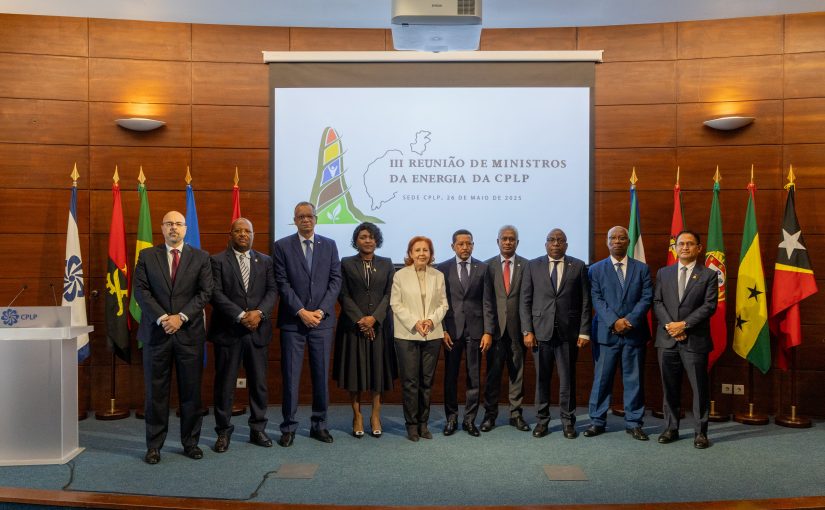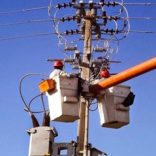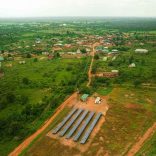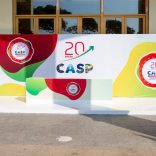Sasol carries out experimental loading of cooking gas produced in Mozambique - AIM
CPLP: Member states’ energy ministers discuss more cooperation in sector

The CPLP is made up of Angola, Brazil, Cabo Verde, Guinea-Bissau, Equatorial Guinea, Mozambique, Portugal, Sao Tome and Principe and Timor-Leste. [Photo: CPLP/X]
The need to strengthen cooperation in the energy sector between member states of the Community of Portuguese Language Countries (CPLP) was highlighted at the end of the third meeting of CPLP energy ministers, which took place on Monday in Lisbon.
Speaking to Lusa at the end of the meeting, Portugal’s minister for the environment and energy, Maria da Graça Carvalho, stressed that the gathering served to emphasise that it is essential to “strengthen cooperation in the area of energy” – pointing out that this “has not traditionally been one of the areas of cooperation within the community.”
During the meeting, the CPLP’s executive secretary, Zacarias da Costa, said that this sector should “increasingly be one of the pillars of co-operation” within the community.
According to Portugal’s minister for the environment and energy, who linked the issue of energy to climate, “cooperation has to do with best practices and aid between the various countries, so that there is decarbonisation based on good solutions and a just transition” and “there are countries that are more advanced than others in this transition.”
Maria da Graça Carvalho emphasised that even countries like Angola, Mozambique and Timor-Leste, which have significant reserves of hydrocarbons, are willing to follow a clean energy path.
“All of them [CPLP countries] are aiming for decarbonisation, to have more renewable energy, to have greater decentralisation of energy, to have electrification covering their entire territory,” she stressed. “Even those that have potential and exploit fossil resources have all aligned themselves with decarbonisation.”
According to Carvalho, another point discussed at the meeting was making the CPLP a recognised bloc in international forums, since there is the advantage of several of its members belonging to other blocs, such as the European Union, the African Union and the BRICS (Brazil, Russia, India, China and South Africa), so that the Portuguese-language countries “discuss and coordinate” their positions.
She ave as an example possible action at the climate conference that is to be held in Brazil this year.
“For example, in the area of climate and COP30, this co-operation can be very programmed, prepared so that when we arrive at the various negotiations, we can bring to each of our [economic and political] groups information about what is happening in the other groups and co-ordinate with the interests of the other groups,” she said. “So this coordination is very advantageous.”
Other issues discussed at the meeting were the joint search for funding, especially for rewnewable energy, and the possibility of greater co-operation, even bilaterally, in this area.
“Our debt conversion with Cabo Verde was very much appreciated at the meeting, so the fact that it is going very well could be an example that can be replicated among other pairs of countries,” Maria da Graça Carvalho said – referring to a scheme pioneered by Portugal under which debt can be swapped for green investments by the creditor.
“Gender equality” was also discussed, namely the need for more women in the sector.
Energy poverty, which is also related to the previous point, was another topic under discussion, she said.
“Most of the people who suffer the greatest consequences of energy poverty are women, especially in the poorest countries, where cooking is done with wood, in a way that has a lot of emissions that are very harmful to health,” she noted. “Therefore, there is a great need to use what is called ‘clean cooking’ or solar cookers, or cleaner cookers, to improve the health of those who cook, in essence.”
The Portuguese minister emphasised that a new meeting with CPLP ministers with this portfolio has been scheduled for 2027.
According to Zacarias da Costa, “no country in the community should be left behind in this energy transition.”
The CPLP is made up of Angola, Brazil, Cabo Verde, Guinea-Bissau, Equatorial Guinea, Mozambique, Portugal, Sao Tome and Principe and Timor-Leste.
Já começou a III Reunião de Ministros da Energia da CPLP, este dia 26 de maio de 2025, na sede da CPLP, sob o lema “Impulsionar uma transição energética resiliente, sustentável e inclusiva para a CPLP”.!
Mais informação: https://t.co/lFDLW8ORsy#CPLP #Energia pic.twitter.com/gWLBT5YpL7— CPLP (@_CPLP) May 26, 2025












Leave a Reply
Be the First to Comment!
You must be logged in to post a comment.
You must be logged in to post a comment.